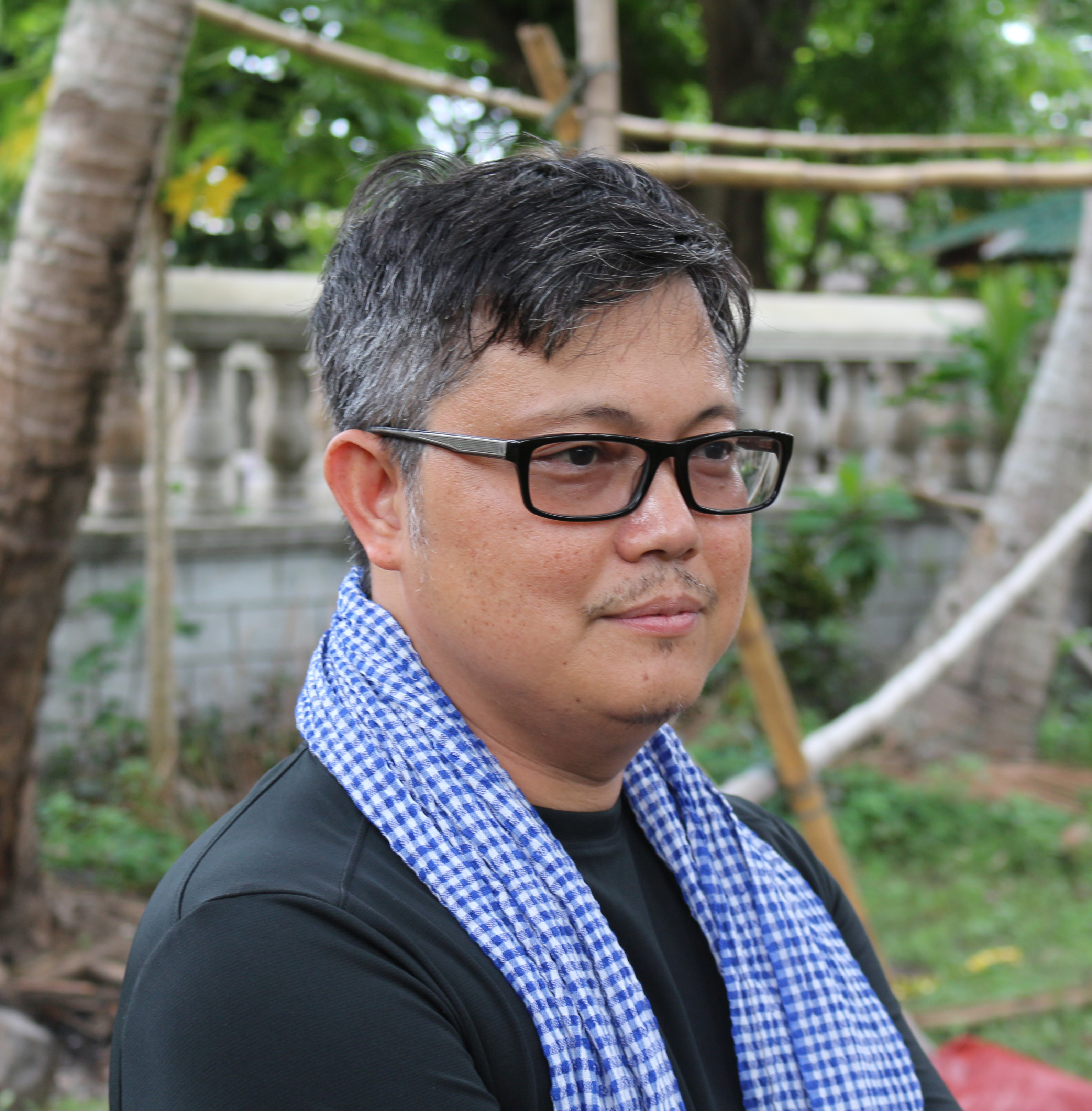Areas of Interest
Historical ecology; landscape archaeology; agricultural systems; settlement patterns; emergent complexity; indigenous peoples; Southeast Asia; Philippines; Taiwan
Biography
Stephen Acabado is Associate Professor of Anthropology at the University of California, Los Angeles. Acabado is a strong advocate of an engaged archaeology where descendant communities are involved in the research process. His archaeological investigations in Ifugao, northern Philippines, have established the recent origins of the Cordillera Rice Terraces, which were once thought to be at least 2,000 years old. His work revolves around agricultural systems, indigenous responses to colonialism, subsistence shifts, landscape archaeology, and heritage conservation. He directs two archaeological projects in the Philippines: the Ifugao Archaeological Project and the Bicol Archaeological Project. In 2020, he is collaborating with Taiwanese colleagues in launching the Taiwan Indigenous Landscape and History Project. He received his PhD and MA in Anthropology from the University of Hawaiʻi-Mānoa and his BA in Anthropology from the University of the Philippines-Diliman.
Publications
ARTICLES IN REFEREED PERIODICALS
- Acabado, S.B., J.M. Koller, C-h. Liu, A. Lauer, A. Farahani, G. Barretto-Tesoro, J.A. Martin, and J.A. Peterson. 2019. The Short History of the Ifugao Rice Terraces: A Local Response to the Spanish Conquest. Journal of Field Archaeology 44(3): 195–214.
- Acabado, S. 2018. Zones of Refuge: Resisting conquest in the northern Philippine highlands through environmental practice. Journal of Anthropological Archaeology 52:180-195, DOI: 10.1016/j.jaa.2018.05.005
- Acabado, S.B., G. Barretto-Tesoro, and N. Amano. 2017. Agricultural intensification, status differentiation, and pottery production in precapitalist Kiyyangan, Ifugao, Philippines. Archaeological Research in Asia, doi.org/10.1016/j.ara.2017.10.004.
- Lapeña, Q. and S.B. Acabado. 2017. Resistance through rituals: The role of Philippine “native pig” (Sus scrofa) in Ifugao feasting and socio-political organization. Journal of Archaeological Science: Reports 13: 583-294.
- Acabado, S.B., M. Martin, and F. Datar. 2017. Ifugao Archaeology: Collaborative and Indigenous Archaeology in the Northern Philippines. Advances in Archaeological Practice 5(1): 1-11.
- Acabado, S.B. 2017. The Archaeology of Pericolonialism: Responses of the “Unconquered” to Spanish Conquest and Colonialism in Ifugao, Philippines. International Journal of Historical Archaeology, 21(1): 1-26.
- Acabado, S.B. and M. Martin. 2016. The Sacred and the Secular: Practical Applications of Water Rituals in the Ifugao Agricultural System. TRaNS: Trans-Regional and –National Studies of Southeast Asia, Available on CJO 2016 doi:10.1017/trn.2016.7
CHAPTERS IN OTHER JOURNALS AND EDITED VOLUMES
- Acabado, S. and E. Hsieh. 2020. East and Southeast Asia at the Age of Contact: Post-1500 Archaeology of Asia. In Handbook of Historical Archaeology, C. Orser, A. Zarankin, P. Funari, S. Lawrence, and J. Symonds (eds), pp. 698-711. New York, Routledge.
- Acabado, S.B. and G. Barretto-Tesoro. 2020. Places, Landscapes, and Identity: Place Making in the Colonial Period Philippines. In The Global Spanish Empire: Five Hundred Years of Place Making and Pluralism (Amerind Studies in Archaeology), C. Beaule and J. Douglass (eds), pp. 200-221. Tucson, University of Arizona Press.
- M. Martin, S.B. Acabado, and R. Macapagal. 2019. Hongan di Pa’ge: The Sacredness and Realism of Terraced Landscape in Ifugao Culture, Philippines. In Indigenous Perspectives on Living with Cultural Landscapes, J. Liljeblad and B. Verschuuren (eds.), pp. 167-179. London, Routledge.
- Acabado, S. and M. Martin. 2018. The Ifugao Agroecological System: Bridging Culture and Nature to Enhance Tropical Biodiversity. In Exploring Frameworks for Tropical Biodiversity: Integrating Natural and Cultural Diversity For Sustainability: A Global Perspective, N. Sanz (ed.), pp. 228-253. Mexico: UNESCO Mexico Office.
- Acabado, S.B. and M. Martin. 2015. Between pragmatism and cultural context: Continuity and change in Ifugao wet-rice agriculture. In Water and heritage: Material, conceptual and spiritual connections. W. Willems and H. van Schaik (eds), pp. 275-297. Leiden: Sidestone Press Academic.
- Acabado, S.B., M. Eusenbio, J. Ceron, and J. Krigbaum. 2014. Rice Pots or Not? Exploring Ancient Ifugao Foodways through Organic Residue Analysis and Palaeobotany. National Museum Cultural Heritage Journal, 1:1.
- Acabado, S.B. and M. Martin. 2014. Community Participation in the Ifugao Archaeological Project. National Museum Cultural Heritage Journal, 1:1.
- Acabado, S.B. and A. Lauer. 2014. Infant Death and Burial Practices in Late Prehistoric Kiyyangan Village, Kiangan, Ifugao. National Museum Cultural Heritage Journal, 1:1.
- Acabado, S.B. and J.A. Peterson. 2014. Did the Little Ice Age contribute to the emergence of rice terrace farming in Ifugao, Philippines? National Museum Cultural Heritage Journal, 1:1.
- Acabado, S.B. 2014. Defining Ifugao Social Organization: “House”, Field, and Self-Organizing Principles in the Northern Philippines. Asian Perspectives 52(2).
- Acabado, S.B. 2012. The Ifugao Agricultural Landscapes: Complementary Systems and the Intensification Debate. Journal Of Southeast Asian Studies 43(3): 500-522.
- Acabado, S.B. 2012. Taro Before Rice Terraces: Implications of Radiocarbon Determinations, Ethnohistoric Reconstructions, and Ethnography in Dating the Ifugao Terraces. In M. Spriggs, D. Addison, And P.J. Matthews (Eds), Irrigated Taro (Colocassia Esculenta) in the Indo-Pacific: Biological And Historical Perspectives. Senri Ethnological Studies. Vol (N.D.). National Museum of Ethnology: Osaka.
- Acabado, S.B. 2010. Landscapes and the Archaeology of the Ifugao Agricultural Terraces: Establishing Antiquity and Social Organisation. Hukay: Journal for Archaeological Research in Asia and the Pacific, 15: 31-61.
- Acabado, S.B. 2009. A Bayesian Approach to Dating Agricultural Terraces: A Case from the Philippines. Antiquity 83(2009): 801-814.
Presentations
- 2020 Coopting Colonialism: The Archaeology of Philippine Indigenous History. College of William and Mary, Williamsburg, VA. February 25, 2020.
- 2019 Responses to Droughts and Warming in the Ifugao Highlands: The Resilient Ifugao Agroecological System. Climate Change, Indigenous Resilience and Local Knowledge Systems: Cross-time and Cross-boundary Perspectives, Research Institute for the Humanities and Social Sciences, Taipei, Taiwan. December 13-16, 2019.
- 2019 Landesque Capital or Cultural Perpetuation? Common Pool Resource in the midst of the Market Economy in Ifugao, Philippines. Department of Geography and the Environment, University of Texas-Austin, November 8, 2019.
- 2018 Resisting Conquest through Environmental Practice: Indigenous Responses to Spanish Colonialism. Department of Anthropology, University of Colorado, Boulder, March 24, 2018.
- 2017 Keynote Address: Ifugao Archaeology: Linking Academic Discourse with Community Concerns. Delivered at the Community Engagement, Research, and Student Training Workshop, National Chengchi University, Taipei, Taiwan, Dec. 14-15, 2017.
- 2017 On the Edges of the Spanish Empire: The Archaeology of Resisting Conquest in the Northern Highland Philippines. September 14, 2017. Archaeology Around the World Lecture Series, University of Southern California, Los Angeles.
- 2017 Colonialism and Ethnogenesis: Rethinking Dominant Narratives about the Ifugao of the Northern Philippines. May 18, 2017. Department of Anthropology, Stanford University.
- 2016 Economic Intensification and Emergent Political Centralization: Rice Terracing as a Response to Spanish Colonialism in Ifugao, Philippines. May 4, 2016. Department of Anthropology, Harvard University.
- 2016 The Ifugao after Spanish Conquest: Colonization and Identity Formation. A. Watson Armour III Research Seminar Series, Field Museum, Chicago, IL. March 23, 2016.
- 2015 Recent Inception of the Ifugao Rice Terraces: Archaeology, Ethnohistory, and Ecological Data. A Symposium on the Ifugao Rice Terraces: Its Antiquity, Management, and Conservancy, National Museum of the Philippines, June 18, 2015.
- 2015 University Lecture: Highland responses to Spanish colonialism: Economic and political transformations in Ifugao, Philippines. University of Wisconsin-Madison. September 25, 2015.
- 2015 Agroecology and risk minimization: The Complementary nature of Ifugao Agricultural System. International Austronesian Conference, Taipei, Taiwan. Council on Indigenous Peoples and National Taipei University of Education, October 29-30, 2015.
Awards
- 2020 EU Marie Sklodovska-Curie Research and Innovation Staff Exchange 2020-2024 Grant: Probing the Genetic Diversity and Demographic History of Ancient Seafarers in ISEA and Oceania, fromArchaic Hominins to the Dispersal of the Malayo-Polynesian Language Family (€2,042,400.00),with PI Philipp Endicott.
- 2019 European Research Council Grant: PANTROPOCENE: Finding a pre-industrial, pan-tropical ‘Anthropocene’ (€1,499,375) (with PI Patrick Roberts).
- 2019 Taiwan Ministry of Science and Technology: The Challenge and Opportunity for Indigenous Areas under the National Spatial Planning Act: A Study on the Epistemology and Methodology of Indigenous Planning (NT$1,043,000.00), with PI Da-Wei Kuan.
- 2019 Taiwan Ministry of Science and Technology, Taiwan-Philippines Indigenous Knowledge, and Sustainable Development Overseas Science Research Center (TPILSC) Project ($300,000), with PI Min-Cheng Kou.
- 2018 National Geographic Society-Committee for Research and Exploration ($49,713).
- 2018 Whiting Foundation Mini-Grant for Public Engagement ($5000).
- 2018 Taiwan Ministry of Science and Technology (MOST): Dynamic Spatial Governance in the Mountain Social-ecological System: Case Study of the Tayal Communities in the Watershed of Shih-Men Reservoir, with PI Da-Wei Kuan (NT$893,000) (renewed).
- 2018 Faculty Research Grant, UCLA Academic Senate ($6980).
- 2018 Ahmanson Field Research Grant ($3000).
- 2017 Faculty Research Grant, UCLA Academic Senate ($7960).
- 2016 Taiwan Ministry of Science and Technology (MOST): Dynamic Spatial Governance in the Mountain Social-ecological System: Case Study of the Tayal Communities in the Watershed of Shih-Men Reservoir, with PI Da-Wei Kuan (NT$685,000).
- 2015 National Science Foundation-Research Experience for Undergraduates, Ifugao Archaeological Project (Award # 1460665; $159,123) (2015-2017).
- 2015 Hellman Fellowship: Highland Responses to Spanish Colonialism ($25,000).
- 2015 Faculty Career Development Award, UCLA Diversity and Faculty Development ($10,000).
- 2015 Faculty Research Grant, UCLA Faculty Senate ($10,000).
- 2012 National Geographic Society-Committee for Research and Exploration Grant. Ifugao Archaeological Project.
- 2011 National Parks Service. Cultural Landscape Inventory and Interim Treatment Plan for Asan and Agat Invasion Beaches, Guam.
- 2011 National Parks Service. Climate Change Vulnerability Assessments on Known Archeological Sites at War in the Pacific National Historical Park (Guam) and American Memorial Park (Saipan).
- 2011 Archeological Site Condition Assessments and Cave Inventories at War in the Pacific National Historical Park (Guam) and American Memorial Park (Saipan).
- 2011 GeoEye Foundation Imagery Grant for San Remigio, Cebu Archaeological Project.
- 2007-2008 Henry Luce Foundation/American Council of Learned Societies Dissertation Fellowship.
- 2007-2008 National Science Foundation Dissertation Improvement Grant: Landscapes and Self-Organizing Systems: The Archaeology of the Ifugao Rice Terraces, Northern Philippines.
- 2001-2006 Asian Cultural Council Fellowship (ACC), ACC New York and ACC Philippines.
Graduate Students
- Danielle Kalani Heinz (Archaeology IDP)
- Edward Cleofe (Archaeology IDP)
- Yen Chun Wang (Archaeology IDP — incoming)
- Madeleine Yakal (Anthropology)

